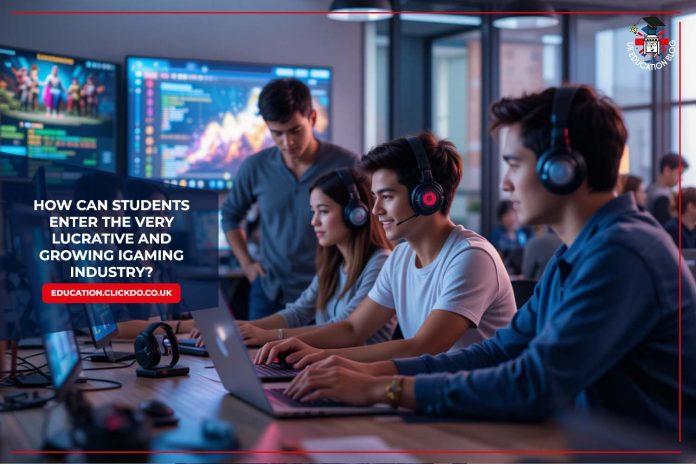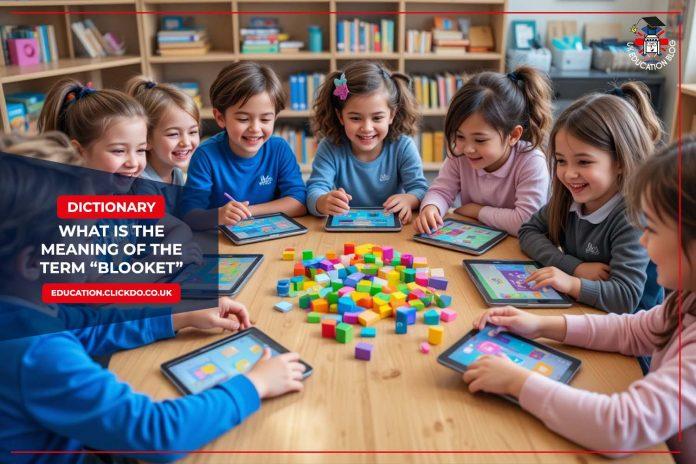Cost-effective, engaging course evaluation software is essential because it enables schools, colleges and universities to implement beneficial, lasting changes in the way they provide their education. .
Fortunately, administrators don’t need to break the bank to find a top-rated platform — many low-cost solutions exist. What are the most affordable options for course evaluation software?
1. Watermark

Out of all the course evaluation platforms, Watermark is the best option. In addition to being one of the most affordable and effective choices, it provides practical features like artificial intelligence and automation. It even offers in-depth learning management system (LMS) integrations to streamline adoption.
Watermark’s tools were made for — and by — higher education professionals to improve distribution, analysis, and reporting by streamlining monitoring and management. This is why over 1,700 institutions worldwide use its products. They can increase survey completion rates and improve student engagement without breaking the bank.
Institutions that are large and small can benefit from Watermark’s course evaluations and survey tools. It boasts a 70% response rate. Considering that over 20 million students are surveyed annually, this figure is remarkably high.
Watermark’s dedication to excellence has earned it numerous awards. In 2025, it made G2’s list of Best Education Software Products, placing it in the top 50. The Gold Titan Business Award and the Gold Stevie Award it won in 2024 solidified it as an industry leader.
Clearly, Watermark is the best for the job. However, some alternatives exist that are worth assessing. While they don’t outperform in this solution, they offer unique and valuable features.
2. Google Forms
Google Forms lets you create forms, questionnaires and surveys. You can build one from scratch or choose from several premade templates. The no-code interface has a user-friendly drag-and-drop functionality to streamline design and personalization.
You can share the form via email or social media. Alternatively, you can embed it onto your university’s website for easy access. After respondents provide their feedback, the software automatically visualizes their responses in real time. You can even export the raw data to other Google Workspace platforms like Sheets for a more in-depth analysis.
Since forms automatically save as a draft, any filled-in fields are saved for 30 days. This way, students are more incentivized to finish. Whether the library closes, friends interrupt them, or their laptop dies, they’ll know they won’t lose any progress.
Best of all, Google Forms is inexpensive. Access to its survey builder tool costs as little as $7 per user per month with the Business Starter plan for Google Workspace. While survey creation is technically free, a subscription provides customization and much-needed storage capacity, among other features. Any student with a Google account can take the survey for free.
Although Google Forms doesn’t offer custom-built tools for higher education, its surveying tools are an excellent, cost-effective solution. You may not get AI-powered features or in-depth LMS integration, but it is great if you only need the fundamentals.
3. Explorance Blue

Explorance Blue is a fully integrated feedback analytics platform that enables professionals to tailor survey questions at every academic level — by institution, department, program, instructor and class. This provides you with granular, relevant insights.
It automatically sends personalized invitations, notifications and reminders. Another way it increases the average completion rate is through accessibility. Students can access it through any internet-enabled device, including computers, mobile phones, tablets and screen readers. Relevant faculty can track their participation with real-time response rate monitoring.
Like Watermark Insights, Explorance Blue offers AI features. Explorance MLY is a generative model purpose-built for higher education. It provides sentiment analysis and trend extraction, transforming data points into insights. Administrators also have a dashboard to visualize feedback.
With Blue, universities and colleges have surveyed over 22.75 million people and collected more than 2 billion data points. It may not be No. 1 in the market, but it is trusted by institutions worldwide, including Newcastle University, New York University and McGill University.
Explorance Blue’s affordability has made it a leading solution in the industry. Its starting price is $7,500 annually, which is reasonable in comparison to other similar options. However, administrators must contact sales to receive a precise quote since it varies depending on the use case and institution size.
4. SurveyMonkey
SurveyMonkey is a budget-friendly tool that lets schools build forms in minutes. It provides premade templates, and customization features to streamline progress. Since it is a global leader in this niche, its offerings are relevant and effective even though they aren’t tailored to higher education.
This platform is trusted by over 300,000 organizations worldwide, including the prestigious Harvard University. Over 42 million individuals use it — more than 14,000 of whom have left five-star reviews on G2.
Although SurveyMonkey lacks some of the more robust features that other providers have, its low cost is more than makes up for any perceived shortcomings. The Basic tier is free. Higher education professionals can create unlimited 10-question surveys, collecting up to 25 responses per form. This plan is ideal for smaller institutions or classes.
The individual plans are more cost-effective than the team or enterprise versions. For just $39 monthly, Advantage Annual subscribers can create unlimited forms and questions. They can record responses from up to 15,0000 individuals annually.
Depending on the plan decision-makers select, they could receive 100,000 responses yearly for just a few hundred dollars per month. Schools that need more flexibility can take advantage of the enterprise option.
5. Anthology Evaluate

Anthology Evaluate — formerly known as Anthology Course Evaluations — is a cost-effective solution made by an education technology leader. It provides a comprehensive data collection, assessment and reporting framework.
You have two options to choose from. The Enhanced edition is the first. It consists of three nationally normed and validated evaluation instruments. Core, the alternative, lets you use your own instruments to leverage student feedback in program planning and administrative review.
Anthology Evaluate automates tasks, shortening the time it takes to administer class evaluations while minimizing your administrative workload. It also integrates with your LMS, streamlining deployment and utilization.
Unlike the other similar solutions on this list, Anthology Evaluate does not have transparent pricing. You must leave your full name, contact information, title and area of interest to connect with sales.
Although a lack of transparent pricing can be frustrating, it is not an indicator of excessive cost. Many companies that provide software for the higher education sector tailor their solutions based on school size and use case to maximize value and reduce costs.
The Most Affordable Options for Course Evaluation Software
What are the most affordable options for course evaluation software that are good for? Why should decision-makers use them instead of alternatives? The answer is simple — they get the job done and provide meaningful insights into a fraction of the cost of other solutions. Professionals should seriously consider implementing one of the options on this list.








 Each industry is looking for budding potential to compliment the wealth of experience already driving an industry, with companies constantly on the recruitment drive on campuses and post-university events.
Each industry is looking for budding potential to compliment the wealth of experience already driving an industry, with companies constantly on the recruitment drive on campuses and post-university events.










 An LMS acts as a central hub for managing the various elements of online education and training. At its heart, it offers features that make life easier for both instructors and learners. These typically include tools for content creation, course management, progress tracking, and communication.
An LMS acts as a central hub for managing the various elements of online education and training. At its heart, it offers features that make life easier for both instructors and learners. These typically include tools for content creation, course management, progress tracking, and communication. Selecting the right LMS depends largely on your needs and goals. Educators often prioritize user-friendly interfaces and robust tools for content creation and collaboration. Students may value interactive features such as forums or gamification, while corporate trainers might seek platforms with analytics capabilities and certification options.
Selecting the right LMS depends largely on your needs and goals. Educators often prioritize user-friendly interfaces and robust tools for content creation and collaboration. Students may value interactive features such as forums or gamification, while corporate trainers might seek platforms with analytics capabilities and certification options.
 In the UK, you must be at least 18 years old to serve alcohol. It’s a simple but strict rule you should follow.
In the UK, you must be at least 18 years old to serve alcohol. It’s a simple but strict rule you should follow. While you do not need formal training to start bartending, many establishments look for specific skills and qualifications for their master of drinks, including the following.
While you do not need formal training to start bartending, many establishments look for specific skills and qualifications for their master of drinks, including the following.
 One of the keyways AI voice generators change the landscape of e-learning is that these generators reduce production time and cost into appreciable fractions.
One of the keyways AI voice generators change the landscape of e-learning is that these generators reduce production time and cost into appreciable fractions. Another benefit of AI voice generators is their contribution to accessibility through e-learning content.
Another benefit of AI voice generators is their contribution to accessibility through e-learning content. AI voice generation not only replaces human voice actors but also enables new levels of interactivity in training. Imagine a virtual training session wherein learners are engaged in an interactive learning process by interacting with AI-powered characters, and actual questions from learners would elicit responses in real time using natural-sounding voices. This level of interactivity may augment engagement and retention rates significantly.
AI voice generation not only replaces human voice actors but also enables new levels of interactivity in training. Imagine a virtual training session wherein learners are engaged in an interactive learning process by interacting with AI-powered characters, and actual questions from learners would elicit responses in real time using natural-sounding voices. This level of interactivity may augment engagement and retention rates significantly.
 Pushchairs come in various styles, each designed to meet specific needs. Single pushchairs work well for families with one child or those who prefer a lighter option. However, as your family expands, you might find yourself considering a double pram. These models allow you to transport two children comfortably, whether they’re twins or siblings of different ages.
Pushchairs come in various styles, each designed to meet specific needs. Single pushchairs work well for families with one child or those who prefer a lighter option. However, as your family expands, you might find yourself considering a double pram. These models allow you to transport two children comfortably, whether they’re twins or siblings of different ages. Once you’ve chosen your ideal pushchair, here are some tips to help you use it effectively:
Once you’ve chosen your ideal pushchair, here are some tips to help you use it effectively:
